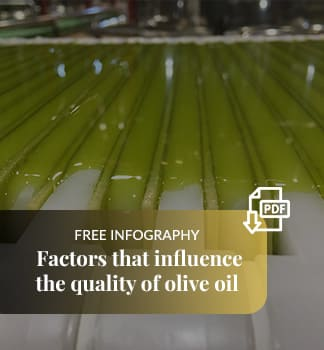Listen to this article
When we try to establish the requirements to export olive oil, we could fill 300 sheets with the amount of information necessary to export olive oil. From the necessary documents, list of operators, converters, legislation according to the country of departure and destination, labeling, quality certificates, insurance, invoices, tariffs, and all this with the difficulties of the latest modifications and the particularities of the countries of destination.
However, we wanted to collect in this post some basic and minimum requirements if we want to export olive oil with minimum guarantees.
We are going to see here the basic points and without which we do not recommend in any case embarking on a complex decision such as the export and marketing of olive oil.
We are going to develop the following requirements that without a doubt must be met to export olive oil.
- Have a business plan
- Have the basic documents to export
- Have a duly standardized traceability plan
Have a business plan
On most occasions when we talk about a business plan we back down, snort and run away from its realization. Traditionally, the business plan has been a tool full of items that is sometimes tedious and not very useful. However, the commitment of the olive sector to professionalization is determined by the development of tools that help us make decisions based on mature and solid criteria.
Without a business plan to export or market olive oil, we cannot tackle a complex and above all expensive path, where each decision we make will mean success or failure for our company. The business plan is a document that will help us break down the most important points when we want to develop a line of work.
Before making large investments in exporting and marketing olive oil, we must analyze both the olive oil sector in the country to which we are heading, as well as its environment, as well as its projection.
The objective of the business plan is to document based on what criteria we have made the decision to export olive oil or market it. In this way we will see the coherence or not of the idea that we carry or the line of business that we want to develop. It is a roadmap to find out which path our olive oil business is going to follow, as well as its viability.
The only necessary requirement for a business plan to be effective is that it be alive, that we be capable of adapting it to new situations that arise, that it be up-to-date and avoid being a static document.
Avoiding the tediousness of business plans, we are going to see what the basic points would be:
Describe the category of my olive oil
Know exactly what quality or qualities of olive oil we want to export or market. This is something simple, where we must have updated the physicochemical and sensory analysis of our olive oil.
It is about knowing what category we are talking about and above all what category it has when the merchandise arrives at its destination. That is, knowing my product well and how it evolves.
Market and competition analysis
We cannot invest in a market in which we only know that our neighbor has exported and has done well. This is fine to keep in mind, but it can't be the reason I launch my entire export strategy. In the market analysis I have to see both what the consumer of that country is like, what the competition I am going to encounter is like, what the prices of the olive oil that is sold are, what the character of the distributor and importers is like and know how to treat them. Making a strategic and well-designed prospecting trip is highly recommended by ESAO, since we will see in situ the reality of the market we want to target.
Marketing strategies
We can never go to a market without knowing how we are going to make ourselves known. Whether it is online or offline tools, we have to take advantage of all the marketing resources that are possible and that we have previously seen are the ideal ones for my olive oil company or my brand in particular. The final objective of all exportation and commercialization of olive oil is the sale, the first step to sell is that they know us.
Marketing will help us attract all those potential buyers and prospects. On the other hand, marketing will also help us retain all those customers from our first sales, and if we carry out good marketing, our first buyers will help us sell more and better. Therefore, the investment and the marketing strategy that we are going to carry out is of great importance.
Risk analysis
In any decision that is made in relation to our olive oil company, whether it is a producer or a cooperative, any new line of work that we are going to carry out has some risks. You have to know that the risks are part of the decisions, that it is part of them and that you have to know them.
Analyzing the possible risks that we may encounter, trying to reduce them and knowing how to react to them, will allow us to become aware of them and not be scared when they occur, if they do occur. On the other hand, we will react better and in an organized way to them.
Economic and financial plan
There is no doubt that when our olive oil company has decided that it wants to export, it is necessary to analyze everything related to the state of liquidity that we have.
Carrying out an economic or financial plan for three years will allow us to know the viability of our export project. Know how much we want to invest, whether or not we are going to go to financing, what the forecasts are, etc. This point is of vital importance to be able to approach the export.
Have the basic documents necessary to export olive oil.
A second essential requirement to export olive oil, once we have made our business plan, is to have the basic documents necessary to export olive oil.
In this section, we must take into account that each of the documents must be in accordance with both the legislation of origin and the legislation of destination, while the countries must be taken into account, the updated information must be consulted at the moment in which we are going to make our first shipment.
These two reasons make it unfeasible to develop each of the points, being the most advisable, to name each of them, so that, later, the company's export manager adapts it to his country, both of origin and destination, as well as that the information is up-to-date at the time the shipment is made.
Know that in practically all countries and all governments have a department specialized in exports.
The documents that we must have present will be:
- Customs Documents
- Certifications of Origin of the merchandise
- Commercial documents
- Transport Documents
- Quality certifications
- Sanitary Certifications
- Insurance policies
- Traceability
Have a properly standardized traceability plan
By having the information provided by a traceability plan, it is possible to deliver defined products to specific markets, with the guarantee of knowing with certainty its origin and history.
The concept of traceability is associated, without a doubt, with modern production processes and products of higher quality and value for the final customer, regardless of the country.
“Traceability is understood as the set of those pre-established and self-sufficient procedures that allow knowing the history, location and trajectory of a product or batch of products throughout the supply chain at a given time, through tools. determined."
According to the Codex Alimentarius, “traceability is the ability to follow the movement of a food through the specified stage(s) of production, processing and distribution”1. The Regulation that regulates it is 178/2002 of the European Commission and it is in January 2005 when traceability requirements are made mandatory by the European Union. It is therefore a legal obligation, by European food safety regulations, to manage and implement traceability in the olive oil industry.
For the olive sector, correctly applying traceability helps us to deepen our knowledge of the structure of the food chain, in order to be able to detect and correct possible structural failures, from the producer to the consumer.
Being able to identify the origin of an olive oil and being able to trace it throughout its useful life favors safety and gives credit to the product.
It is therefore of special importance for the marketing and export of olive oil, to offer guarantees to the consumer of safety and professionalism, in the search for trust and loyalty towards olive oils in each and every one of its categories.
Having a correct and modern traceability system in place will help us on our way to marketing and exporting olive oil.
.png)





